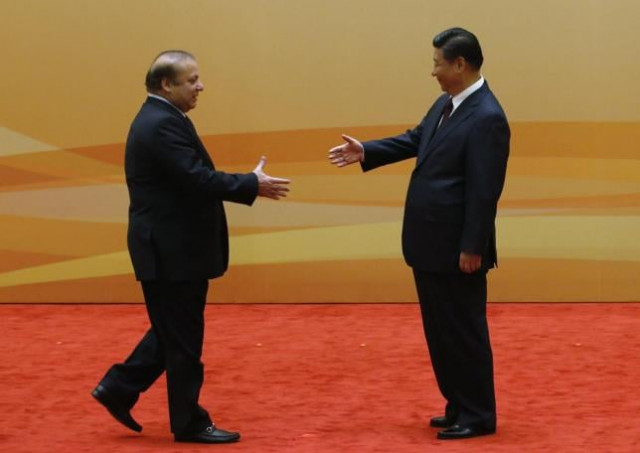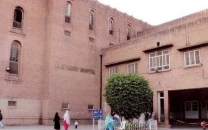Road to progress: ‘Economic corridor should be national consensus project’
Speakers of a discussion on CPEC call for removing concerns on the project

PHOTO: REUTERS
Politicians, academics, journalists and foreign policy experts attended the talk organised by Muhammad Mehdi, a Pakistan Muslim League-Nawaz (PML-N) leader and chairman of the Soch, think tank.
Former foreign secretary Shamshad Ahmad Khan said that although the era of Cold War had ended, Cold War strategists were still in the driving seat in major countries. “The US and China are big players. A lot is going on between them. Pakistan should complete the corridor without getting embroiled in anybody’s war,” he said.
“The [CPEC] initiative from China is a windfall for us. Pakistan has great geo-political importance in the region. The CPEC is not just about building roads, bridges and infrastructure… it is a response to global dynamics,” Khan said.
He said during the Cold War, China and Soviet Union were “contained”. “Now there is no Soviet Union and the Cold War mindset wants to contain China. The Asian pivot in which India, Japan, New Zealand, Korea and Australia are being supported by the US is there to contain China.”
“We have to handle it the way we had handled our nuclear technology project. Otherwise, it could end up like the Kalabagh Dam,” the former secretary said.
Senator Mushahidullah Khan said the CPEC was important not only for Pakistan but also for many other countries. “China is pursuing trade with Africa and the Middle East,” he said.
He said all the national institutions should do their job. The consistency of policies and democratic governance was the only way to strengthen the institutions, Khan said.
Punjab University’s Prof Farooq Hasnat said, “The $46 billion announced for the project should be taken as an investment and not an aid package. “We have to keep our house in order to complete the project.”
Hasnat called for addressing the concerns of smaller provinces before the project was completed. “Inter-provincial harmony holds the key to the success of the project,” he said.
Mehdi said that during his recent visit to China, he had realised that the Chinese had some concerns about the project.
Published in The Express Tribune, December 7th, 2015.



















COMMENTS
Comments are moderated and generally will be posted if they are on-topic and not abusive.
For more information, please see our Comments FAQ